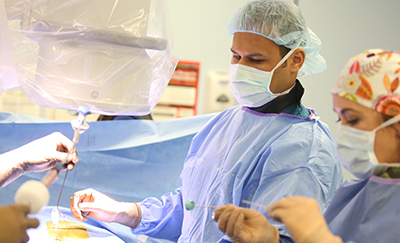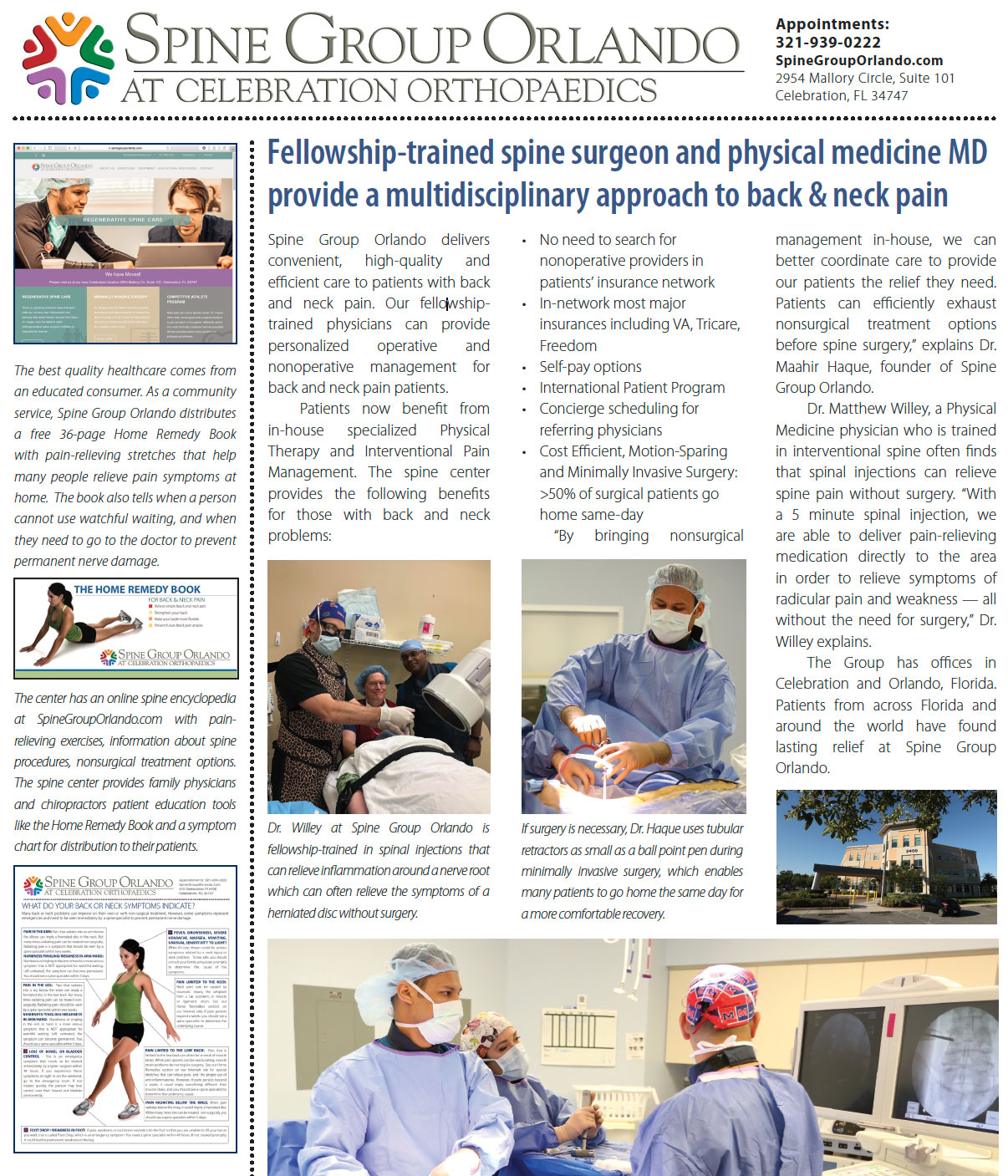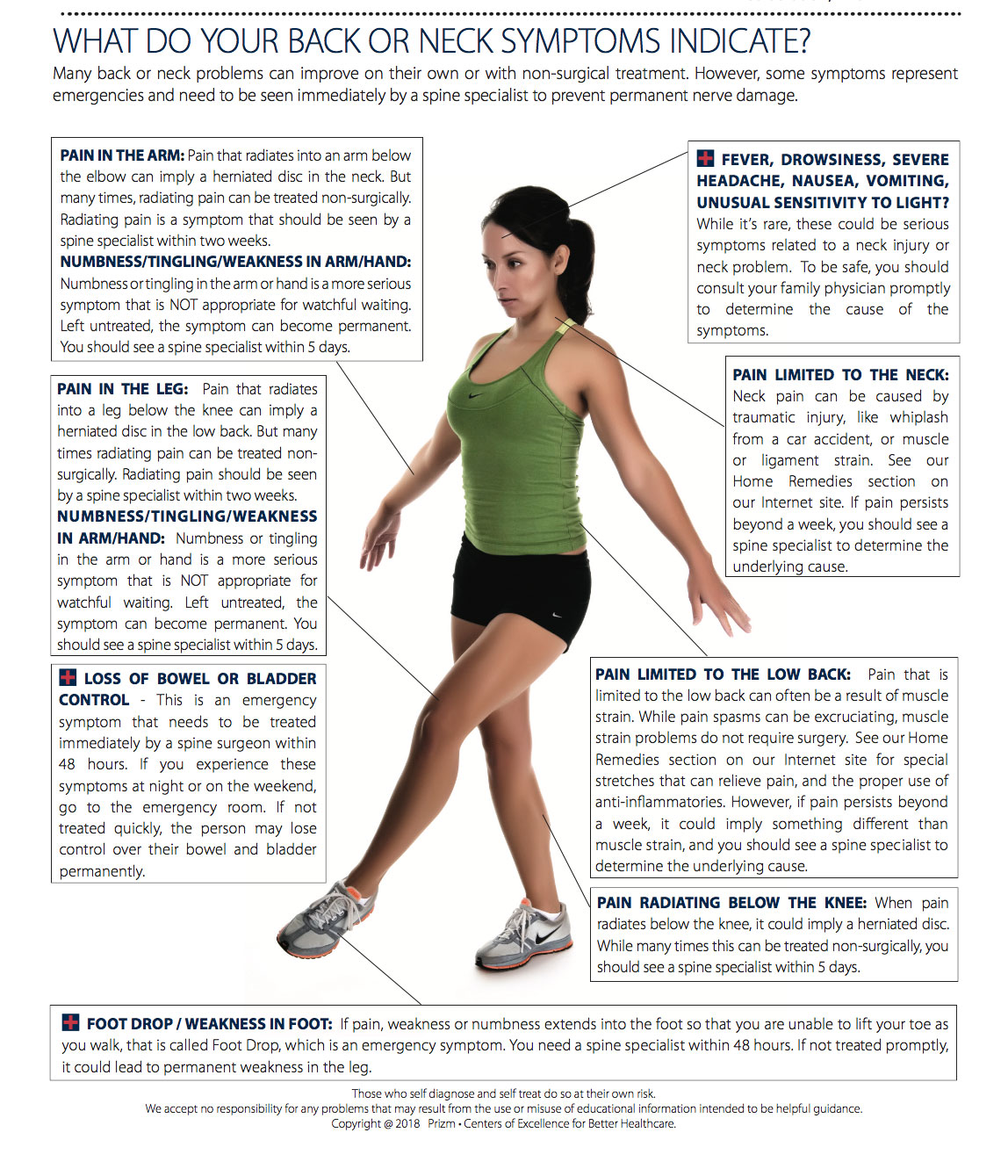International Patient Program
For international patients coming to Spine Group Orlando
Spine Group Orlando is uniquely positioned as a true spine surgery destination. We offer a concierge program to assist the out-of-town international patient. The international patient gains the peace of mind that they are accessing the most advanced spine surgery capabilities in the world. By having minimally invasive spine surgery in the United States, the incision is much smaller which makes recovery from spine surgery much faster and with less discomfort than when a larger incision is made.
Maahir Haque, MD is recognized as a leader in the field of minimally invasive spine surgery. At Spine Group Orlando, Dr. Haque also provides second opinions for spine surgery and MRI reviews for those with back pain and neck pain. Dr. Haque emphasizes non-surgical treatment options where possible. When spine surgery is necessary because of a herniated disc, spinal fracture, or spinal stenosis, Dr. Haque operates through tubular retractors that reduce the size of the incision, lessen blood loss, reduce time in the hospital, speed return to activity with a less painful recovery. This spine surgery expertise enables many patients to have outpatient spine surgery and be home the same day.
We treat spine patients needing assessment or second opinion for spine surgery or artificial disc replacement. We see patients from a variety of countries including:
- Canada
- Mexico (Monterrey, Merida, Merida, Nuevo Leon, Guadalajara, Puebla, Mexico City
- Caribbean (including U.S. Virgin Islands, St. Maarten, St. Kitts, St. Thomas, Cayman Islands, Dominican Republic, Puerto Rico, Turks and Caicos, Bahamas, Jamaica.)
- Central America (including Costa Rica, Panama, etc.)
- Middle East (including Egypt, Israel, Saudi Arabia, United Arab Emirates, Kuwait, Qatar)
- India
- Pakistan
The benefit of traveling from Mexico or the Caribbean to the United States for spine surgery?
Residents of Mexico and the Caribbean may enjoy affordable and easy access healthcare for simple primary care problems. However, when complex health issues arise, many residents of Mexico or the Caribbean prefer to access the state-of-the-art healthcare and advanced technology available at centers of excellence.
Secondly, with the pandemic, becoming hospitalized in Mexico and the Caribbean can pose additional risk of exposure to Covid and other infections since these hospitals often are the place of last resort for very sick patients. Lastly, nursing shortages caused by the pandemic can create issues where some patients get worse when they are in the hospital because they’re given the wrong medications or the wrong dose.
Consequently a back or neck surgery for a herniated disc can be problematic for hospitals that are not geared for advanced spine surgery.
Around the world, 95% of the time, the traditional surgical incision for spine surgery is about 3 inches long. But the highest trained spine surgeons are proficient in minimally invasive spine surgery and operating through a half-inch incision with an instrument the width of a ball point pen. These spine surgeons have to perform 150 to 300 of these cases each year to stay proficient, and consequently these spine specialists are simply NOT found in smaller countries where they might perform 20 such surgeries a year.
The last issue for the spine surgery patient is that the instrumentation and tools for advanced spine surgery, along with advanced MRI diagnostics and robotic technology, can cost a hospital $1 million to acquire. Hospitals in the Caribbean and smaller hospitals in Mexico simply can’t afford such technology for the low number of spine surgeries performed each year. Consequently, for many people needing back or neck surgery in Mexico and the Caribbean, they will receive the state of the art technology from the 1980s rather than the most advanced technology for spine surgery.
The same situation exists for artificial disc replacement in Mexico or the Caribbean, where such technology simply isn’t available because surgeons need to perform a high volume of such surgeries to become proficient.
Advanced spine surgery for Mexicans and those from the Carribean at Spine Group Orlando in Orlando, Florida
Conversely, at Spine Group Orlando, Dr. Maahir Haque has access to the most advanced diagnostics and artificial disc technology. Dr. Haque is able to match the artificial disc patient with the most appropriate artificial disc implant, whether that is Mobi-C, Prodisc, or Simplify artificial discs.
Within two or three hours, for example, a person can travel by plane from locations in Mexico like Monterey, Merida, Nuevo Leon, Guadalajara, Puebla, Mexico City and land at Orlando’s modern international airport. Similarly there are direct flights to Orlando from Bahamas, Jamaica, Cayman Islands, Puerto Rico and the U.S. Virgin Islands.
Because Spine Group Orlando has a spine MD, Dr. Matthew Willey, who specializes in non-surgical treatment options like spinal injections and diagnosing spine problems, some patients are able to have symptom relief without spine surgery.
If spine surgery is appropriate, Dr. Maahir Haque can perform the necessary surgery in the morning and the international patient can start their recovery in a nearby hotel, relaxing at the hotel pool. A follow-up visit with the spine surgeon can then release the international spine patient for travel back home. Or the patient may want to explore some of the international attractions related to Disneyworld and Universal Studios.
Dr. Maahir Haque and Dr. Matthew Willey are both board-certified and fellowship-trained in spine, which is the highest level of medical training possible.
Spine Surgery in Canada vs. Spine Surgery in the U.S.
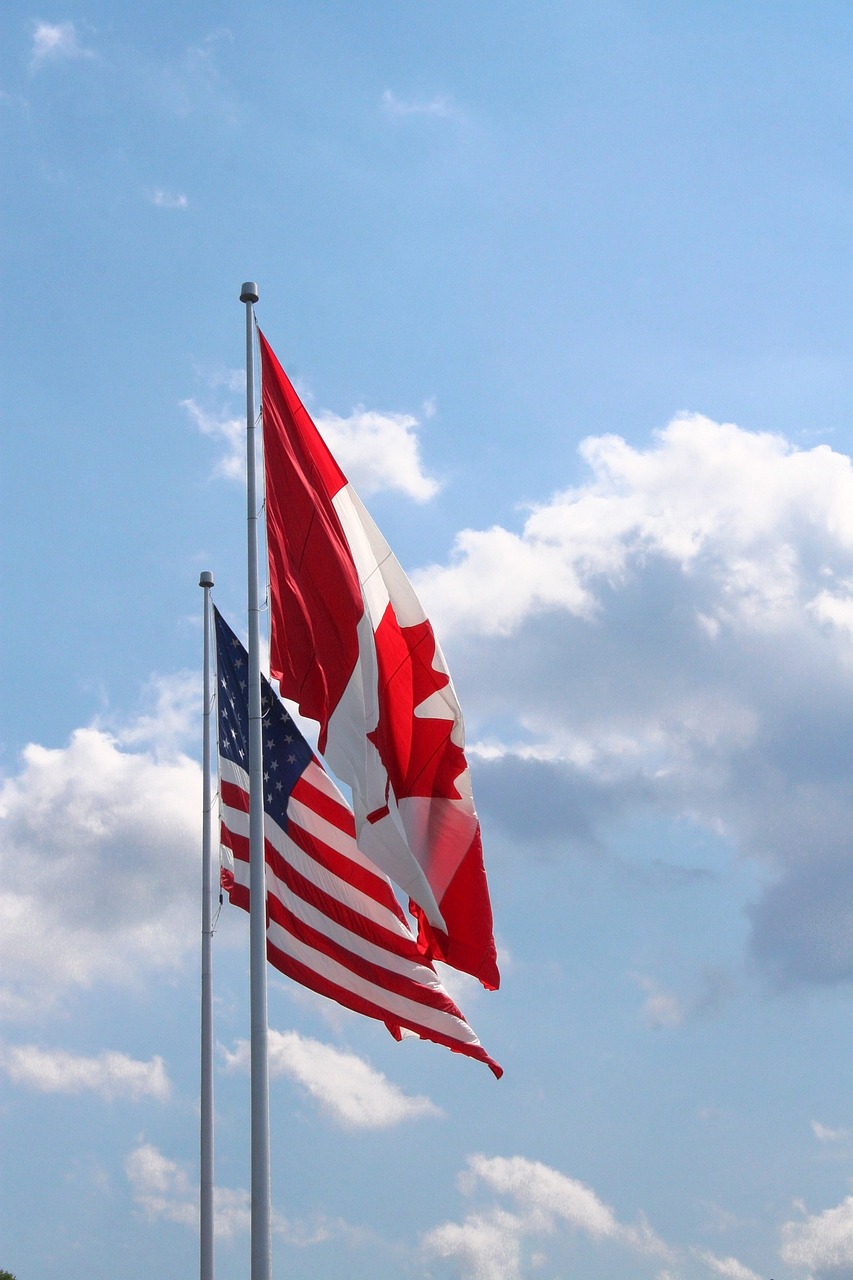 Canadians enjoy a great healthcare system where costs are covered. But sometimes the wait for socialized medicine can be excruciatingly long for neck and back surgery, because in Canada spine surgery is often categorized as an elective surgery that can wait. Consequently, specialized back surgery and neck surgery that would otherwise get the person back to their life, their job, and their favorite recreational activities, are delayed for a year or more. Even essential MRI diagnostic studies can involve being on a six month long waiting list.
Canadians enjoy a great healthcare system where costs are covered. But sometimes the wait for socialized medicine can be excruciatingly long for neck and back surgery, because in Canada spine surgery is often categorized as an elective surgery that can wait. Consequently, specialized back surgery and neck surgery that would otherwise get the person back to their life, their job, and their favorite recreational activities, are delayed for a year or more. Even essential MRI diagnostic studies can involve being on a six month long waiting list.
The problem with delaying spine surgery for serious symptoms like a numb hand or foot is that spine research has shown that the longer a person has those symptoms, the more risk that surgery will be less effective at relieving those symptoms. That means there is a window of time of about two to three months after onset of symptoms for spine surgery to be most effective at eliminating numbness or weakness in a hand or foot cause by a herniate disc in the neck or low back.
Research has shown that when a herniated disc impinges and presses on a nerve root for several months, it can cause permanent numbness. It is much like parking a car on a garden hose in the driveway. The longer the car sits on the hose, the more the hose can be permanently crimped.
According to a 2016 report by the Commonwealth Fund, 29% of adults waited two months or longer, compared to 6% for the those in the United States. In Canada 18% of adults had to wait longer than 4 months for non-emergency surgery, compared to 7% in the U.S. Another report by the Fraser Institute in 2014 showed that 52,513 Canadians traveled to the United States for elective surgeries rather than wait 6 months or longer for surgery in Canada. The report also documented that the number of Canadians accessing healthcare in the U.S. was growing rapidly at 25% increase each year.
Unlike in the United States, appointments with specialists in Canada are determined by the government’s assigned “priority and need,” rather than the patient’s desire, and willingness to pay, for a joint replacement procedure or a back or neck surgery to get back to work or their favorite sport.
The Fraser Institute report noted that in addition to waiting for treatment, the Canadian patient also has to be very “patient” through the diagnostic process as well. The report noted that the AVERAGE waiting time for an MRI — which is the typically one of the basic diagnostic tests to identify the presence of a herniated disc in the back — is three months. The report added that aside from the person having to endure pain symptoms, waiting several months “can have serious consequences such as increased pain, suffering, and … in certain instances result in poorer medical outcomes —transforming potentially reversible illnesses or injuries into chronic, irreversible conditions, or even permanent disabilities.”
Spine Group Orlando is particularly convenient for a second opinion for spine surgery and MRI diagnostic tests for the Canadian spine patient. Because of the popular worldwide vacation destinations in Orlando like Disneyworld and Universal Studios, Orlando International Airport often has direct flights from many large Canadian cities.
Because Spine Group Orlando performs minimally invasive spine surgery through a half-inch incision, the patient from Canada can travel with their family, have spine surgery in the morning and recover later that day at a comfortable resort. And because some walking is often a prescribed part of the spine surgery rehab process, the Canadian patient can often join their family for walks through Disneyworld or Universal Studios.
Spine Group Orlando has Canadian patients that can fly direct into Orlando international airport from the following Canadian cities:
- Toronto, Ontario
- Montreal, Quebec
- Vancouver, British Columbia
- Calgary, Alberta
- Edmonton, Alberta
Should I have Spine Surgery in the United States?
The other benefit of having spine surgery in the U.S. at Spine Group Orlando is that the surgeon typically performs a higher volume of back surgery and neck surgery, and is more proficient at complex artificial disc replacement surgery.
Secondly, in Canada, hospitals may have negotiated for the lowest-priced artificial disc implant because of the government subsidized programs. Conversely, in the U.S. the spine surgeon selects the best artificial disc for the patient based not on price but the patient’s anatomy and clinical outcome.
If you are Canadian and have the resources to cover the cost of spine surgery, you don’t have to wait for MRI diagnostic studies or spine surgery to get relief of symptoms and get back to activity.
On the form below, you can email us any questions you may have about your back or neck problem, any previous diagnosis you have, the costs of spine surgery at our spine center, travel to our center, the treatment process, and where we perform our surgeries.
Artificial disc replacement for the international patient
Spine research from the North American Spine Society has documented that artificial disc replacement is the recommended treatment for herniated disc in the neck rather than spinal fusion which locks the vertebrae together. An ACDF procedure (anterior cervical discectomy and fusion) can cause adjacent segment disease where other discs begin to herniate from the loss of motion.
By replacing the damaged cervical disc with a artificial disc, motion is preserved which lessens the stress on other discs in the back.
The same logic applies to herniated discs in the low back. However, there is a great deal of skill required to access the disc in the low back and replace it with an artificial disc. Dr. Haque is also one of the few spine surgeons in Florida to provide lumbar artificial disc replacement using the Prodisc-L artificial disc.
Dr. Haque is featured on the national site CentersforArtificialDisc.com as an author on the subject of artificial disc replacement for herniated discs in the neck. The Centers for Artificial Disc web site has content specific to disc replacement options and alternatives to spinal fusion.

Travel from the Caribbean to Spine Group Orlando for spine surgery
For the person with a herniated disc or other back or neck pain symptoms, accessing the best spine technology in the United States is only a short direct flight away from a regional spine center in Orlando, Florida.
For example, there are direct flights on major airlines to Orlando from the following cities in the Caribbean:
- Nassau, Bahamas
- San Juan, Puerto Rico
- Providenciales, Turks and Caicos
- Santa Domingo, Dominican Republic
- Kingston, Jamaica
- St. Kitts
- St. Barts
- U.S. Virgin Islands: St. John, St. Thomas, St. Croix
Flying from the Caribbean into the United States from the US Virgin Islands or Puerto Rico is extremely easy and can be done without a passport.
Orlando has a modern airport because of all the international visitors related to the worldwide attractions of Disneyworld and Universal Studios. There are shuttles and taxis to some of the best resort hotels associated with all these international travelers. The Spine Group Orlando office is only a 20 minute ride from the airport. Our patient coordinator can provide assistance with hotel recommendations based on your visit and other attractions you may want to see on your visit.
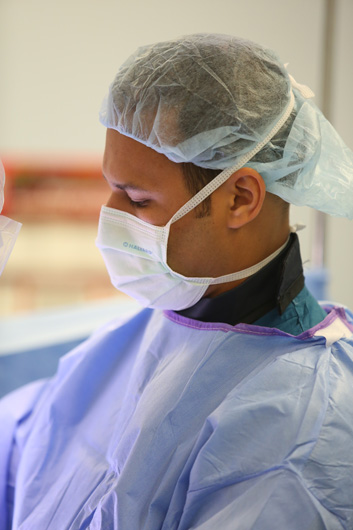 What happens if I wait too long to have spine surgery?
What happens if I wait too long to have spine surgery?
It’s understandable that back and neck pain patients in Mexico or the Caribbean may want to delay treatment or a visit to the doctor as long as possible. However, unlike other medical issues where pain is a good indicator of an emergency or urgent need for care, with back and neck problems, pain is NOT a good indicator of an emergency symptom.
Yes a back spasm can be excruciating and knock a person down to their knees. But a back spasm does not require surgery. Back spasms can be treated non-surgically.
Instead, for back and neck problems, the emergency symptoms are weakness or numbness in a hand or foot, or loss of bowel/bladder control — something many people don’t associate with a herniated disc in the back or neck or any kind of spine injury.
But if these symptoms are not treated within 24 or 48 hours, the pressure of the herniated disc on the nerve root can cause permanent paralysis. This makes the numbness/weakness, or incontinence, permanent and lifelong.
Another somewhat urgent symptom for back pain and neck pain is “radicular pain” where the person feels searing pain radiating down into their leg from a herniated disc in the low back, or radiating pain into an arm from a herniated disc in the neck. While watchful waiting, or spinal injections, can be used for radicular pain, if the radiating pain symptom is not relieved over three to six months, some research studies show any subsequent surgery may not be effective in relieving the radiating pain.
In this sense, extended pressure on the nerve root causes a permanent crimp in the nerve, causing it to remain in a “stuck” position and constantly transmitting a pain signal to the brain. The best analogy is to picture a car sitting on a garden hose on the driveway. If the car sits there for a month before moving, it can leave a permanent crimp in the hose. The nerve works the same way. The longer the nerve is compressed by a herniated disc, the less likely it can return to normal function. Consequently, when a person has a herniated disc in the low back or neck, waiting too long can result in lifelong disability.
Is spine surgery better in the United States?
Beyond the medical urgency related to treatment of a herniated disc, the second reason thousands of international patients from Mexico and the Caribbean choose to have back surgery or neck surgery in the USA relates to access to the best and most advanced spine surgeons and spine technology.
There is significant training required to use minimally invasive instruments like tubular retractors. Many older surgeons, conversely, prefer to make a three-inch incision because it’s easier for them, and that’s how they’ve been trained, and they aren’t comfortable learning a new way or looking through a cannula to visualze the disc on a TV screen. Secondly, such intricate surgery requires the spine surgeon to perform 150 to 300 such surgeries each year to stay proficient.
While minimally invasive spine surgery requires extensive training for the spine surgeon, the benefit of a tiny incision is huge to the patient, however. There is less blood loss and no need for outside blood. The minimally invasive spine surgery patient also can go home hours later, on the same day, to recover in their own home. Because the incision is shorter, there is less disruption to muscles and ligaments so the recovery is quicker and much less painful.
For those who want to lessen their risk of permanent symptoms by avoiding the wait for treatment, and those who recognize that life is short and desire to get back to an active life quicker, Spine Group Orlando can provide a better outcome from spine surgery.
The educational Internet site at SpineGroupOrlando.com can answer many of your questions about nonsurgical treatment options for spine surgery, the benefit of an MRI review in advance of your travel to the United States, and if you should have spine surgery in the United States.
How bundled pricing helps the international patient
Spine Group Orlando provides competitively-priced bundled prices for services. These bundled case rate prices address spinal injections and same-day minimally invasive spine surgeries. Spine surgeries covered under a bundled price include endoscopic discectomy, microdiscectomy, laminectomy, anterior cervical discectomy and fusion (ACDF), and minimally invasive fusions.
Post operative care can include private duty nursing. Specialized spine therapy can be provided as patients recover in some of the world’s premiere resort facilities located in Orlando. We can also assist patients and their families with their reservations with Orlando’s theme parks like Disneyworld and Universal Studios. Translation services are also available at a reasonable cost.
Spine Group Orlando can assist with travel arrangements through our personal global concierge. Patients arrive at Orlando International Airport. Our office is just southwest of Orlando, and is a 20 minute drive from the airport.
Exploring spine surgery at Spine Group Orlando
On the form below, you can email us any questions you may have about your back or neck problem, any previous diagnosis you have, the costs of spine surgery at our spine center, travel to our center, the treatment process, and where we perform our surgeries.
Our Patient Care Coordinator can then receive any diagnostic information you have available such as X-rays, MRI, CT or diagnoses from your primary care physician or back doctor in Mexico.
The Spine Group Orlando office is only a 20 minute ride from the airport. Our patient coordinator can provide assistance with hotel recommendations based on your visit and other attractions you may want to see on your visit.
REQUEST MORE INFORMATION
We welcome questions from international patients. Complete the form below and use the MESSAGE box, and we'll respond to your inquiry within 2 business days. Our Patient Care Coordinator can be reached at 321-939-0222 with urgent questions about your appointment request.
Maahir Haque, MD is recognized as a leader in the field of minimally invasive spine surgery. At Spine Group Orlando, Dr. Maahir Haque also provides second opinions for spine surgery and MRI reviews for those with back pain and neck pain. Dr. Haque emphasizes non-surgical options for back pain and neck pain where possible. This can include accessing a back pain specialist with expertise in pain-relieving spinal injections and spine therapists. Spine therapy can include back stretches that can be a future home remedy for back pain or neck pain. If spine surgery is necessary because of a herniated disc, spinal fracture, or spinal stenosis, Dr. Maahir Haque operates through tubular retractors that reduce the size of the incision, lessen blood loss, reduce time in the hospital, speed return to activity with a less painful recovery. This spine surgery expertise enables many patients to have outpatient spine surgery and be home the same day. Spine Group Orlando and Dr. Maahir Haque provides artificial disc replacement in the neck using the Mobi-C disc implant, the first FDA-approved disc for multiple levels in the neck. Prodisc-C is also used for artificial disc replacement in the cervical spine. Dr. Haque is also one of the few spine surgeons in Orlando, Florida to provide lumbar artificial disc replacement using the Prodisc-L artificial disc. Dr. Haque is also referred patients from across Orlando and north central Florida for artificial disc replacement surgery as an alternative to spinal fusion. Accordingly, Dr. Haque's patients travel from across north central Florida, including: Orlando; Jacksonville; Tallahassee; Lakeland; Gainesville; Tampa; Daytona Beach; and Cocoa Beach. The spine center, as a destination for medical tourism for some international patients from Mexico and the Caribbean, can provide recommendations to out-of-town patients on nearby hotels and tourist attractions. Dr. Haque is featured on the national site CentersforArtificialDisc.com as an author on the subject of artificial disc replacement for herniated discs in the neck. The Centers for Artificial Disc web site has content specific to disc replacement options and alternatives to spinal fusion. Click here to visit the Centers for Artificial Disc.

